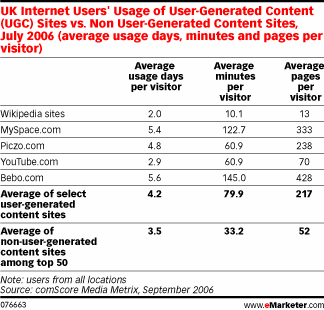MY VIEW: Anti-social Behaviour

I'm worried. When Forrester comes out this week with their latest Trends paper that kicks off with, "...marketing executives and managers: Social Computing must play some role in your online strategy," how far off can the end of all this, be? I'm going to bring more evidence to the table that the cacophony of opinion noise out there will need to be controlled and funneled, or we'll miss the opportunity to tap into the most important social phenomenon ever.
Today, a poke at Sutori.com Here's a site developed by Blast Radius that is a good chem. lab experiment. Blast created it, I suspect, as a chance to stretch their Social Networking chops and see how a white page concept could come to life. You can pick up the premise by taking a read of a couple of my posts.
I've been studying the site for weeks, watching for the firestorm to ignite: the exponential growth of participation. The fuel is there: a catalyst of smart, vocal, social networking-oriented staffers. A platform that supports easy point/counter-point battles, ranking and rating to satiate the egos among the opinions.
All this, and it's not really going anywhere. Why? Certainly being small Beta, it needs some push to get it further out--I'm a client of the agency and nobody invited me to come in. Is the intention, "The Voice of Today's Customer" just too broad or uninspiring? I think what it is, is some sort of guarantee that the object of the author's derision or praise, gets the message. Blast Radius knows this because they've put a bunch of programming into supporting qualification and rebuttal from a company. However I've yet to see an official response.
The premise of the opportunity in Satori needs to be delivered on: the voice of the customer heard and responded to by the company. Otherwise, it's just another Website full of opinionated people blabbing off.
Labels: Blast Radius, customer, opinion, social networking




